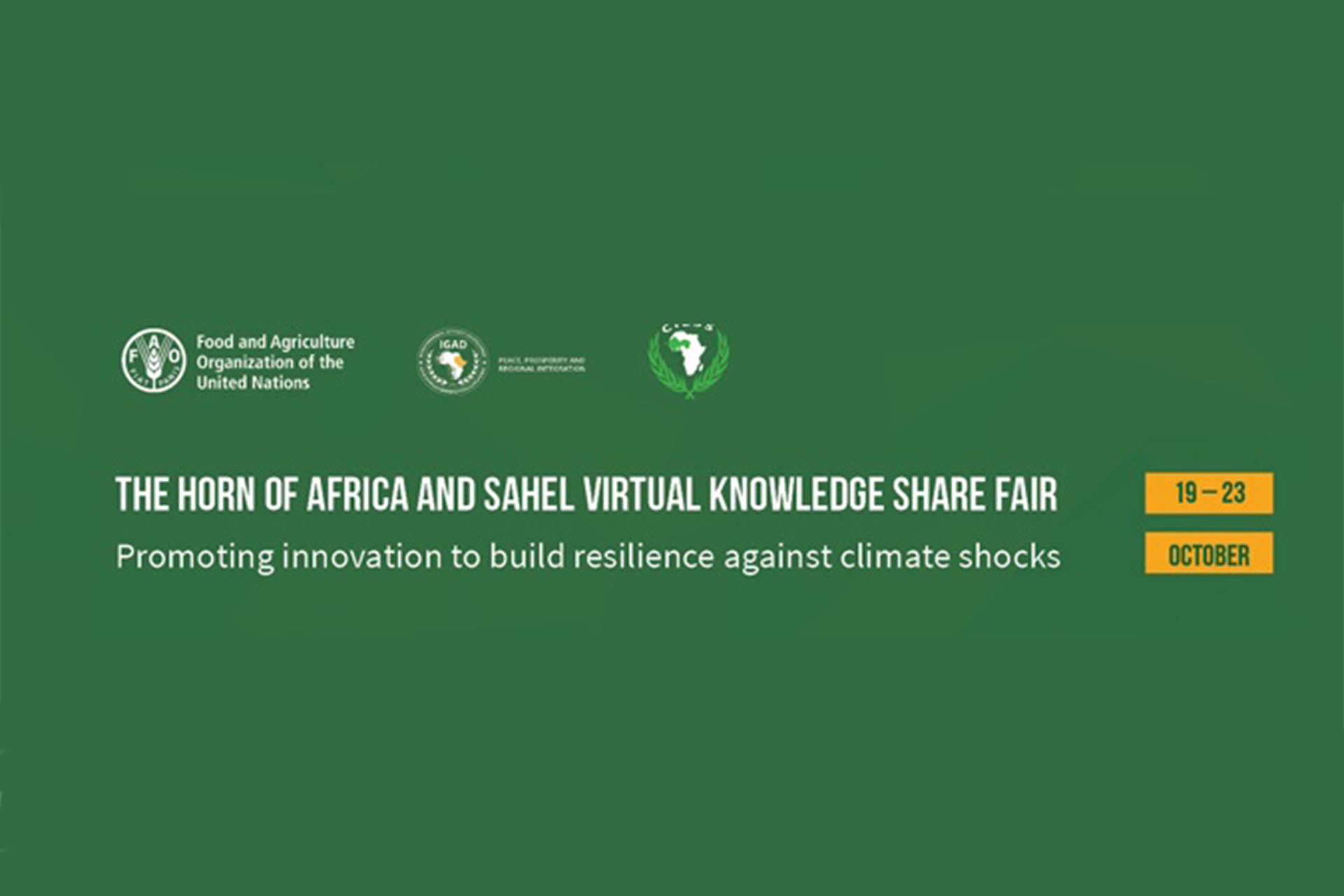20 October 20 2020 (Djibouti, Accra and Ouagadougou): The Intergovernmental Authority on Development (IGAD), the Permanent Interstate Committee for Drought Control in the Sahel (CILSS) and the Food and Agriculture Organization of the United Nations (FAO) are holding the Horn of Africa and Sahel Virtual Knowledge Share Fair from 20 to 22 October 2020 to promote innovations to build resilience against climate shocks.
The Share Fair is bringing together governments, non-governmental partners, civil society organizations, community representatives, the private sector and development partners from East and West Africa. The Fair will showcase the best practices and lessons learned from the IGAD and the Sahel regions on disaster preparedness and response.
During a short opening ceremony today, the Executive Secretary of IGAD H.E. Dr. Workneh Gebeyehu, said IGAD is privileged to co-host this year’s resilience share fair that is funded by the European Union and highlighted that IGAD is committed to promoting knowledge exchange between the IGAD and the Sahel regions that will in turn deliver economic benefits at the regional and national levels as well as contribute to sustaining peace and development.
“The governments of our regions are committed to improving their preparedness and response to drought and other shocks. This has been one of IGAD’s mandates since its establishment in 1986. We have made significant progress for over 34 years but we require to come together as a region with insights and innovation to build greater resilience to climate change, climate shocks and natural disasters Dr Workneh added.
The Assistant Director-General Regional Representative for Africa of FAO, Mr. Abebe Haile-Gabriel is optimistic that the Fair will foster increased exchange and collaboration between resilience actors, governments, regional bodies, development partners and communities, equipping them to make evidence-based decisions in key thematic areas to avert climate extremes that have affected an average of 16 million people and caused USD 0.67 billion in damage in Africa annually.
“FAO and partners like IGAD and CILSS use a holistic approach at local, national and regional levels to reduce the effects of disasters on food security and nutrition. Our approach to resilience building for the agriculture and food systems is based on context-specific interventions aimed at preventing, anticipating, coping, adapting and transforming to the effects of climate variability and extremes for livelihoods, food and nutrition security,” Mr. Haile-Gabriel added.
The Executive Secretary of CILSS H.E Djimé Adoum reiterated their commitment through the dexterity of its experts in producing information to build food security and climate change resilience.
“Natural disasters linked to climate change, security and health crises have created conditions of chronic vulnerability to hazards and it is of great importance that we strengthen knowledge sharing on resilience and cooperation between regions to constitute an ideal framework for the dissemination of these good practices, ideas and experiences between actors” H.E. Adoum added.
The 2020 virtual Share Fair is building on previous efforts by IGAD, CILSS and FAO to promote knowledge management for informed decision-making and investment in resilience building where in 2013, IGAD and CILSS signed a Memorandum of Understanding (MoU) to formalize structured collaboration between the two regions’ efforts to promote resilience, good practices sharing, and uptake. FAO and other development partners support the implementation of the MoU.
The Share Fair’s themes include disaster risk reduction, climate change adaptation, social protection, innovative support to agro-pastoralists and pastoralists, information and early warning systems and analysis, and natural resource-based conflicts.
The IGAD and the Sahel regions have seen a sharp increase in the frequency and severity of disasters and emergencies. Climate change-related natural disasters and human-made crises have left communities and nations in a state of chronic vulnerability, now compounded by the economic impacts of the COVID-19 pandemic.
Seventy percent of the IGAD region comprises arid and semi-arid lands that receive less than 600mm in annual rainfall. These challenges have led to the development of innovative approaches to building resilience and safeguarding the most vulnerable communities.

